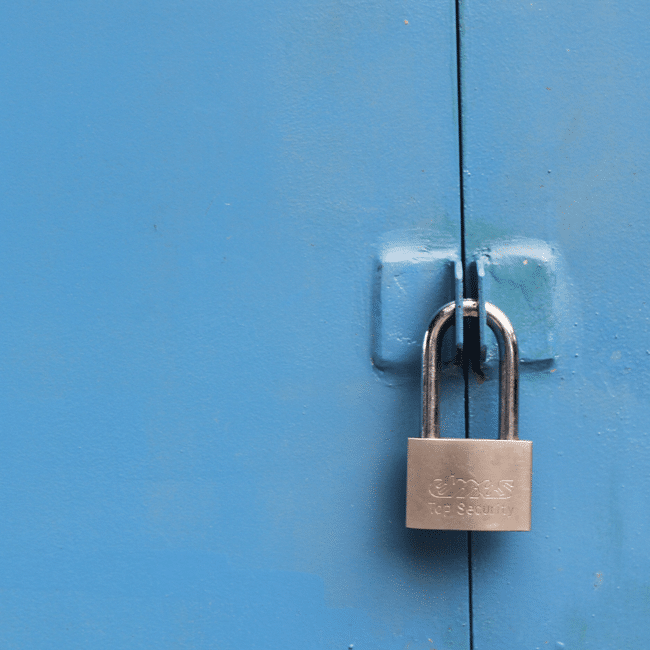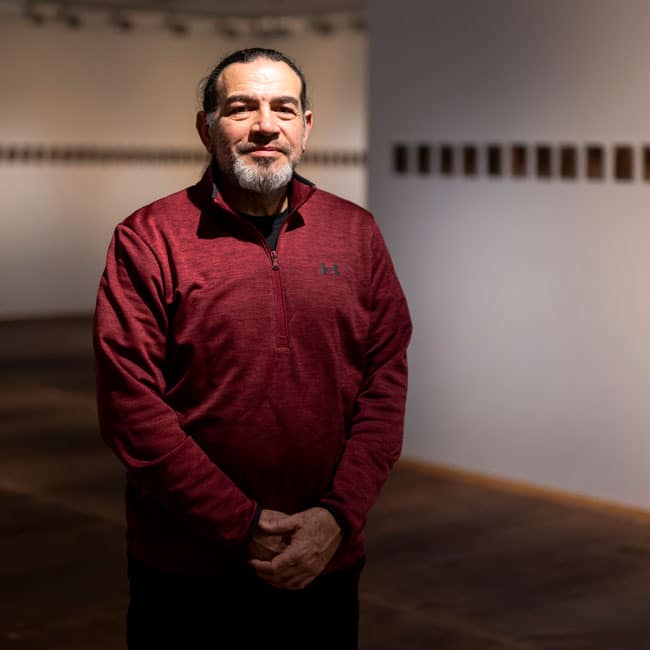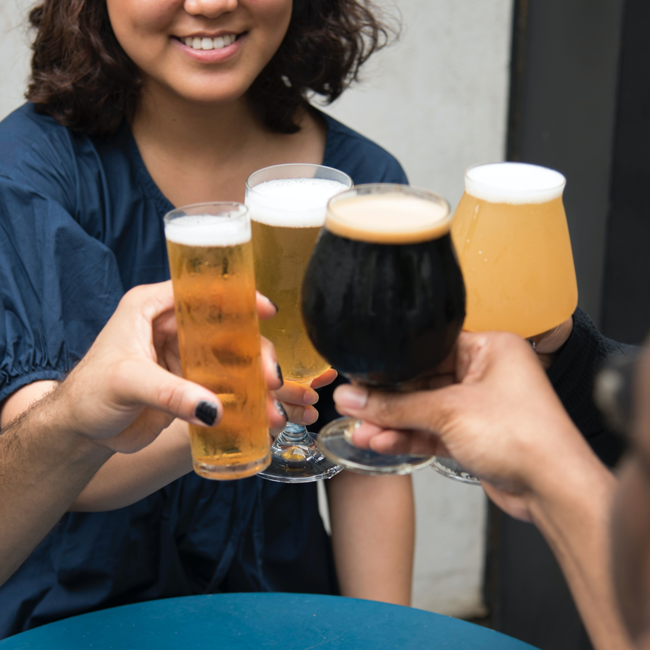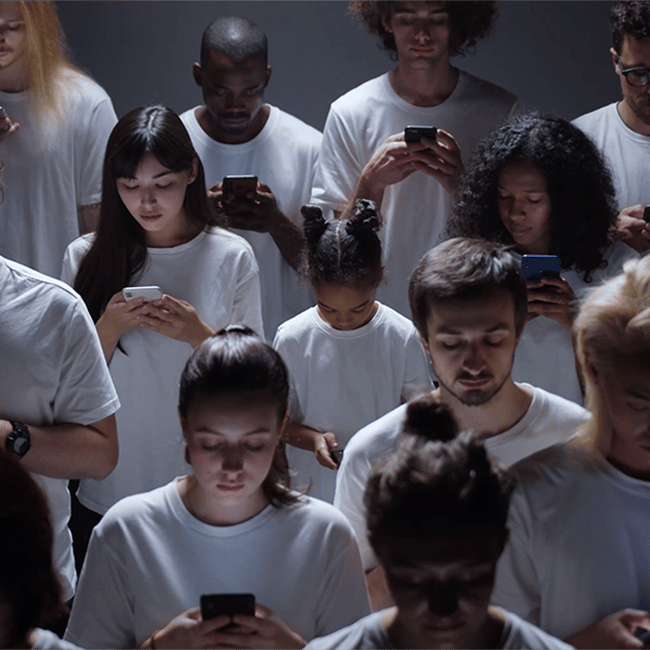Why certain things shouldn’t be “owned”

Why certain things shouldn’t be “owned”
Opinion + AnalysisPolitics + Human Rights
BY Nick Jarvis 10 JAN 2024
What can we truly “own”, and are there things in this era of late capitalism where our current, long-evolved legal and philosophical definitions of ownership are inadequate?
The audience at The Ethics Centre’s ‘Ethics of Ownership’ event was posed these questions, and others, with stimuli scenes by guest actor Sheridan Harbridge.

In Common Law, ownership entails the “right to possess a thing, to use it to the exclusion of others, to alter it, to profit from it, and to dispose of it,” Ethics Centre Executive Director Simon Longstaff said.
This current definition derives from John Locke’s labour theory of property, that when someone mixes their labour with commonly held or natural “God-given” land it can become their private property.
However, Locke qualifies, this applies “…at least where there is enough, and as good, left in common for others.” Meaning a person should not be able to own more than they can use without it going to waste.
A series of quandaries posed to the audience at ‘The Ethics of Ownership’ produced some interesting and instructive dissonance in the way we think about ownership. The story of a woman who took apples rotting on the ground from an orchard to feed her starving family, knowing she’d been denied the right to take them, produced an interesting take on qualifying factors.

Most of the audience thought she had committed theft, but the majority thought she shouldn’t be prosecuted, because the orchard owner had acted unethically in denying his unused apples to the starving family. Locke would argue that the man had forfeited his natural right to the apples as his property as they were going to waste, and that people have a legitimate claim.
17th and 18th Century philosophers Hobbes and Hume held that there “could be no natural right of property ownership, rather the various rights of ownership were created by the state (or some less formal community) and were, thus, a human creation,” and the state or community can change these rules as the imperatives and circumstances change.
These Enlightenment-era theories were established in early imperial/colonial Capitalism, as defined by Karl Marx, amid agricultural and industrialising societies. Marx argued that individuals should own all productive resources in common. This is because when one class (the proletariat) produces goods with their labour, on behalf of an ownership class that derives benefit, the proletariat becomes alienated from those goods and their labour when they cannot afford to own them.
Curiously, Ayn Rand, although a fervid Capitalist, also argued that, “The man who produces while others dispose of his product, is a slave”. Rand, however, argued this as a case for individual rights above all others.
When it comes to ownership over our own selves, a slim majority thought you should be able to sell your own organs, because “your body is the only thing that’s 100% yours,” as one audience member put it. Significantly more of the audience thought you shouldn’t be allowed to sell yourself into slavery, which links back to our (now) deeply held belief that you cannot own another person because, as Emmanuel Kant put it, no person can ever become a means to someone else’s end.
Locke did not extend common property rights to slaves, arguing that slaves cannot lay claim to property as they’re not considered part of civil society, “having forfeited their lives and, with it, their liberties, and lost their estates, and being in the state of slavery, not capable of any property.”
The audience’s answers show how much we value our personal autonomy over our bodies, and gave rise to the fact that, in Common Law countries, you don’t in fact own any part of your body. The “No Property Rule” prohibits individuals from claiming ownership over their own bodies or genetic material.
Interestingly, this law arose as a response to slavery entrenched by various judicial decrees over the centuries, including Shanley v Harvey (1763), where the judge decreed that, “[a]s soon as a man sets foot on English ground he is free.” With ownership of another human eventually ruled indefensible by the courts, and reasons given ranging from “from ecclesiastical law to grave robbing”, a person’s ownership of their own body was abolished as well.
Ownership comes with responsibilities as well as rights – you have the right to exclude others from using your property, but you also have a responsibility to protect that property from improper use by others, for instance, keeping weapons and dangerous animals contained from improper use. You also have a responsibility to use that thing, Locke argued, to maximise its productivity for the good of all society.
The audience consensus was that “owning” things that are of public value, such as artworks and the environment, should not confer the right to do what you like with your property. I would extend this concept to intellectual property such as patents for life saving, or life-improving, medications that private companies or individuals are currently allowed to own and may charge what they like for.
The argument of one audience member was that “things of shared value, while they can be owned in a legal sense, ownership should be more of a role of caretaking,” or akin to borrowing, where you’re duty-bound to return it in the same state you received it in so others can use it after. In the case of inheritance, this ethical obligation to caretake for the thing in possession would pass to whoever inherits it.
Does this mean that our sense of ownership, as defined by law precedent derived from Locke, is no longer fit for purpose, in an era of alienation from labour and destructive, extractive use of natural resources? Does a mining or forestry company have the right to own and ruin a piece of land because they have expended effort to harvest its natural resources, but not maintained or improved it?
When applied to things of common value to everyone on the planet, such as the environment, access to culturally valuable works of art, access to sun, water, shelter, sustenance, or medicine, our legally established definitions of ownership start to look inadequate.
Locke’s definition also didn’t account for indigenous concepts of ownership. For Indigenous Australians, the land owns the people and every aspect of their lives – spiritual, material, social, cultural – is connected to it and its maintenance. You cannot own property and derive maximum benefit from it to its detriment when you’re morally and culturally bound to be a caretaker or custodian for that property.
Perhaps our whole definition of private ownership needs a contemporary rethink when it comes to these objects, resources and ideas of inherent common value. We don’t need to abolish private ownership, but we do need to re-establish rights and responsibilities of use within the concept of the “common good”.

Ethics in your inbox.
Get the latest inspiration, intelligence, events & more.
By signing up you agree to our privacy policy
You might be interested in…
Opinion + Analysis
Politics + Human Rights, Relationships
A critical thinker’s guide to voting
Opinion + Analysis
Politics + Human Rights
Trump and tyrannicide: Can political violence ever be justified?
Opinion + Analysis
Society + Culture, Politics + Human Rights
Freedom of expression, the art of…
Big thinker
Politics + Human Rights, Relationships
Big Thinker: Mary Wollstonecraft
BY Nick Jarvis
Nick Jarvis is a Sydney-based editor and writer on the arts, culture and technology. He's written for The Ethics Centre, the Walkleys, Sydney Festival, Sydney Film Festival, Vice and many Australian arts organisations. He currently works for Sydney Festival.
The ethics of workplace drinks, when we’re collectively drinking less
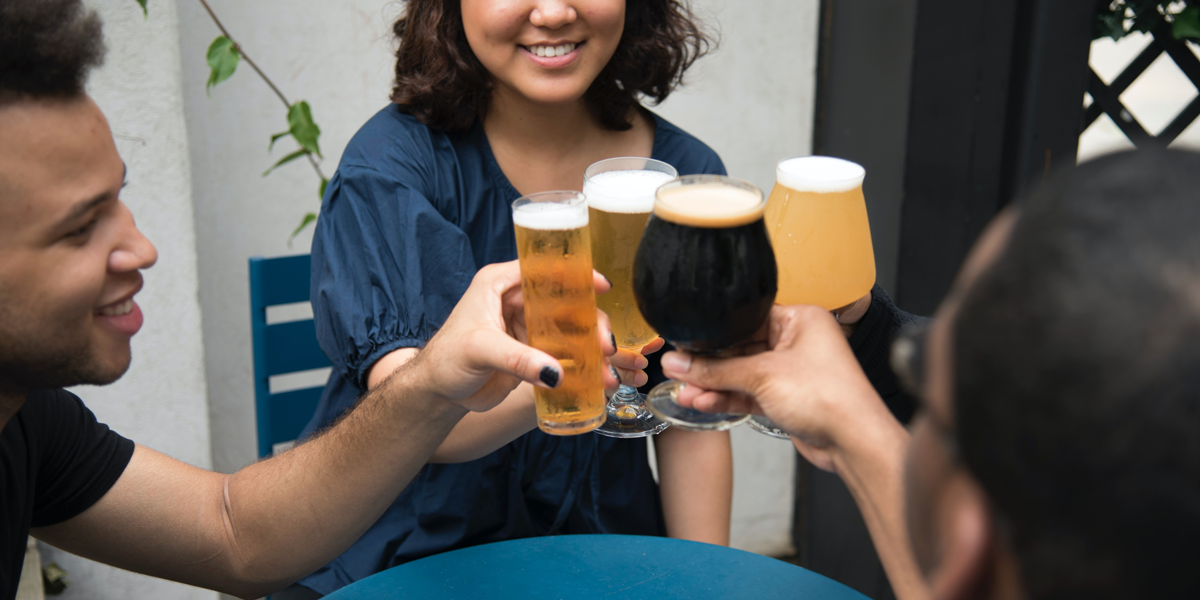
The ethics of workplace drinks, when we’re collectively drinking less
Opinion + AnalysisHealth + WellbeingBusiness + Leadership
BY Nick Jarvis 30 NOV 2023
There is no denying that alcohol is inextricably linked to Australia’s social DNA. Going to the pub with mates, drinking at a BBQ or picnic, at dinner parties, house parties, birthdays or gigs – all of these link “having a drink” with “having a good time” in our national consciousness.
A Roy Morgan research study in 2022 found that the majority (67.9%) of Australians had consumed alcohol in the last month, with the average Australian consuming nearly 10 litres of pure alcohol a year (2017-18 study).
In fact, a 2021 survey named Australians the heaviest binge drinkers in the world, finding we would binge an average of 27 times a year, almost double the global average – although overall alcohol consumption rates have been dropping since the early 2000s.
When it comes to work, alcohol is closely tied to socialising – Friday after work drinks, celebratory drinks to recognise a goal achieved, Christmas parties, launches, networking events; all of them invariably involve alcohol in some capacity. Some people might even say they can’t stomach a work social event unless alcohol is involved.
In some cultures binging is even built into work culture – in China, heavy drinking after a deal has been sealed is a time-honoured ritual, where everyone involved has to let their guard down and form a “moral contract” bound by heavy drinking together. In Japan, nomikai, or drinking parties, are an integral part of workplace culture for socialising and bonding, and everyone is expected to take part.
Alcohol certainly has its benefits as a social lubricant at work events, allowing people to bond together faster, but it also has its dark side – harassment after the lowering of inhibitions, saying something inappropriate to a colleague, potentially embarrassing yourself in front of your team or clients, even assault can follow heavy drinking with work mates.
Having work social rituals based around the consumption of alcohol is also exclusionary for those who choose not to drink, whether because of physical or mental health reasons, religious or cultural reasons, or because they’ve quit or just don’t want to. People may feel pressured to drink in work social spaces, to be social, to network and keep up with the team. A 2019 survey by the UK’s Drinkaware found that more than half of workers surveyed would like there to be less pressure to drink at work events.
And people are increasingly opting out of alcohol-fuelled leisure time, a trend led by the more risk-aware Gen Z. The 2019 National Drug Strategy Household Survey found that, in 2001, the people most likely to have consumed alcohol daily, used illicit drugs or smoked cigarettes were in their 20s. By 2019, that had changed to people in their 40s and 50s. The survey also found the number of people in their 20s who don’t drink at all increased from 9% to 22% between 2001 and 2019.
The drinks industry has adapted, with sales of zero alcohol substitutes rising over 100% in the two years to 2022, but in many cases our workplaces have not.
As more people are becoming ‘sober curious’, or trying to reduce their alcohol intake, it can make it awkward in the workplace when you decline an “al-desko” beer or to troop along to Friday after work drinks. Missing out on socialising with your colleagues can also be a barrier to making closer connections and friendships.
So what responsibility do workplaces have to their employees to offer alcohol free options for socialising, while also respecting the rights and choices of employees who want to drink responsibly?
Employers are mandated ethically and legally to provide safe, inclusive workplaces, and this should include respecting people’s decision to either drink alcohol or not drink alcohol and still be able to participate socially with their workmates and colleagues.
Rather than banning alcohol at work, providing zero alcohol drink options and alcohol-free bonding activities are an easy way employers can foster an inclusive environment, while respecting individual choice.
Just as we’ve seen the “smokers huddle” outside office buildings dwindle to near invisibility in the past ten years, I predict that we’ll soon see a marked increase in the availability of non-alcoholic options at work events and alternative socialising options that don’t come with any pressure, latent or otherwise, to imbibe. Which can only be a good thing for our livers and work-related hangxiety.

BY Nick Jarvis
Nick Jarvis is a Sydney-based editor and writer on the arts, culture and technology. He's written for The Ethics Centre, the Walkleys, Sydney Festival, Sydney Film Festival, Vice and many Australian arts organisations. He currently works for Sydney Festival.
Ethics in your inbox.
Get the latest inspiration, intelligence, events & more.
By signing up you agree to our privacy policy
You might be interested in…
Opinion + Analysis
Business + Leadership
Activist CEO’s. Is it any of your business?
Reports
Business + Leadership
EVERYDAY ETHICS FOR FINANCIAL ADVISERS
Opinion + Analysis
Business + Leadership
Georg Kell on climate and misinformation
Opinion + Analysis
Business + Leadership, Science + Technology
Is technology destroying your workplace culture?
Age of the machines: Do algorithms spell doom for humanity?

Age of the machines: Do algorithms spell doom for humanity?
Opinion + AnalysisRelationshipsScience + Technology
BY Nick Jarvis 14 OCT 2022
The world’s biggest social media platform’s slide into a cesspit of fake news, clickbait and shouty trolling was no accident.
“Facebook gives the most reach to the most extreme ideas. They didn’t set out to do it, but they made a whole bunch of individual choices for business reasons,” Facebook whistleblower Frances Haugen said.
In her Festival of Dangerous Ideas talk Unmasking Facebook, data engineer Haugen explained that back in Facebook’s halcyon days of 2008, when it actually was about your family and friends, your personal circle wasn’t making enough content to keep you regularly engaged on the platform. To encourage more screentime, Facebook introduced Pages and Groups and started pushing them on its users, even adding people automatically if they interacted with content. Naturally, the more out-there groups became the more popular ones – in 2016, 65% of people who joined neo-Nazi groups in Germany joined because Facebook suggested them.
By 2019 (if not earlier), 60% of all content that people saw on Facebook was from their Groups, pushing out legitimate news sources, bi-partisan political parties, non-profits, small businesses and other pages that didn’t pay to promote their posts. Haugen estimates content from Groups is now 85% of Facebook.
I was working for an online publisher between 2013 and 2016, and our traffic was entirely at the will of the Facebook algorithm. Some weeks we’d be prominent in people’s feeds and get great traffic, other weeks it would change without warning and our traffic and revenue would drop to nothing. By 2016, the situation had gotten so bad that I was made redundant and in 2018 the website folded entirely and disappeared from the internet.
Personal grievances aside, Facebook has also had sinister implications for democracy and impacts on genocide, as Haugen reminds us. The 2016 Trump election exposed serious privacy deficits at Facebook when 87 million users had their data leaked to Cambridge Analytica for targeted pro-Trump political advertising. Enterprising Macedonian fake news writers exploited the carousel recommended link function to make US$40 million pumping out insane – and highly clickable – alt-right conspiracy theories that undoubtedly played a part in helping Trump into the White House – along with the hackers spreading anti-Clinton hate from the Glavset in St Petersburg.
Worse, the Myanmar government sent military officials to Russia to learn to use online propaganda techniques for their genocide of the Muslim Rohingya from 2016 onwards, flooding Facebook with vitriolic anti-Rohingya misinformation and inciting violence against them. As The Guardian reported, around that time Facebook had only two Burmese-speaking content moderators. Facebook has also been blamed for “supercharging hate speech and inciting ethnic violence” (Vice) in Ethiopia over the past two years, with engagement-based ranking pushing the most extreme content to the top and English-first content moderation systems being no match for linguistically diverse environments where Facebook is the internet.
There are design tools that can drive down the spread of misinformation, like forcing people to click on an article before they blindly share it and putting up a barrier between fourth person plus sharers, so they must copy and paste content before they can share or react to it. These have the same efficacy at preventing misinformation spread as third-party fact-checkers and work multi-lingually, Haugen said, and we can mobilise as nations and customers to put pressure on companies to implement them.
But the best thing we can do is insist on having humans involved in the decision-making process about where to focus our attention, because AI and computers will always automatically opt for the most extreme content that gets the most clicks and eyeballs.
For technology writer Kevin Roose, though, in his talk Caught in a Web, we are already surrounded by artificial intelligence and algorithms, and they’re only going to get smarter, more sophisticated, and more deeply entrenched.
70% of our time on YouTube is now spent watching videos suggested by recommendation engines, and 30% of Amazon page views are from recommendations. We let Netflix preference shows for us, Spotify curate radio for us, Google Maps tell us which way to drive or walk, and with the Internet of Things, smart fridges even order milk and eggs for us before we know we need them.
A commercialised tool one AI researcher told Roose about called pedestrian reidentification can identify you from multiple CCTV feeds, put that together with your phone’s location data and bank transactions and figure out to serve you an ad for banana bread as you’re getting off the train and walking towards your favourite café.
And in news that will horrify but not surprise journalists, Roose said we’re entering a new age of ubiquitous synthetic media, in which articles written by machines will be hyper personalised at point of click for each reader by crawling your social media profiles.
After 125 years of the reign of ‘all the news that’s fit to print’, we’re now entering the era of “all the news that’s dynamically generated and personalised by machines to achieve business objectives.”
How can we fight back and resist this seemingly inevitable drift towards automation, surveillance and passivity? Roose highlights three things to do:
Quoting Socrates, Know Thyself. Know your own preferences and whether you’re choosing something because you like it or because the algorithm suggested it to you.
Resist Machine Drift – this is where we unconsciously hand over more and more of our decisions to machines, and “it’s the first step in losing our autonomy.” He recommends “preference mapping” – writing down a list of all your choices in a day, from what you ate or listened to, to what route you took to work. Did you make the decisions, or did an app help you?
Invest in Humanity. By this he means investing time in improving our deeply human skills that computers aren’t good at, like moral courage, empathy and divergent, creative thinking.
Roose is optimistic in this regard – as AI gets better at understanding us and insinuating its way into our lives, he thinks we’re going to see a renewed reverence for humanism and the things machines can’t do. That means more appreciation for the ‘soft’ skills of health care workers, teachers, therapists, and even an artisanal journalism movement written by humans.
I can’t be quite as optimistic as Roose – these soft skills have never been highly valued in capitalism and I can’t see it changing (I really hope I’m wrong), but I do agree with him that each new generation of social media app (e.g. Tik Tok and BeReal), in the global West at least, will be less toxic than the one before it, driven by the demands of Millennials and Generation Z, and those to come.
Eventually, this generational movement away from the legacy social media platforms, which have become infected with toxicity, will cause them to either collapse or completely reshape their business model to be like newer apps if they’re going to keep operating in fragile countries and emerging economies.
And that’s one reason to not let the machines win.
Visit FODI on demand for more provocative ideas, articles, podcasts and videos.
Ethics in your inbox.
Get the latest inspiration, intelligence, events & more.
By signing up you agree to our privacy policy
You might be interested in…
Explainer
Science + Technology
Thought experiment: “Chinese room” argument
Opinion + Analysis
Relationships, Science + Technology
Injecting artificial intelligence with human empathy
Opinion + Analysis
Relationships, Society + Culture
What does love look like? The genocidal “romance” of Killers of the Flower Moon
Opinion + Analysis
Relationships, Science + Technology
